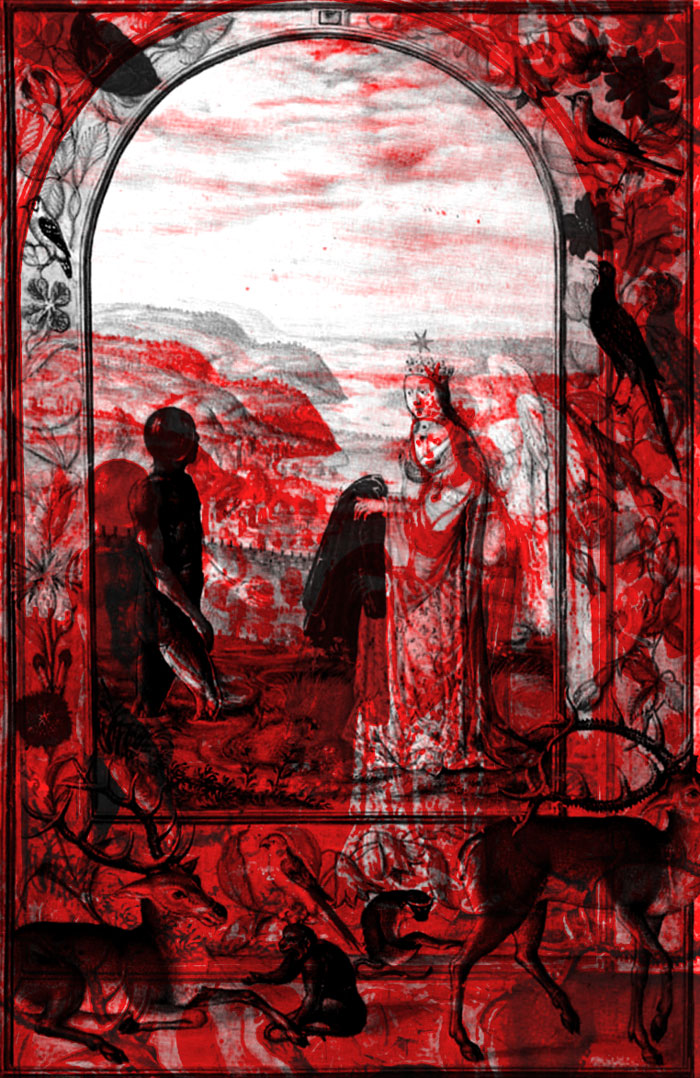Earth Observation Source
Hyytiälä Forestry Field Station, Finland

The Earth Observation Source (EOS) workshop at Helsinki University Hyytiälä Forestry Field Station sets out to bother and to complicate the linear stories of deep-time, geology and anthropocenic discourse. EOS seeks to re-jig the history of the bones and stones with a vitalist writing of the earth and peat, of whiskies, bogs and tree sap, of mycelium and the blinded imaginaries of all earthly, airy and extraterrestrial creatures. We wish to untether planetary futures from an auto-destructive laboratory planet, exploring in the process how linear histories and geologies inform instrumental sciences and industries which are implicated in the initiating of this destroyed planet through effects such as global warming and technologies of resource management and extraction.
Within the context of the exciting work of the Hyytiälä Forestry Field Station (within) forest and atmospheric studies and peat-based measurements, the workshop will explore a more actively aesthetic relation to planetary phenomena such as climate change and to the measurements/research which inform the study of these large-scale objects. Through action and discussion we will ask questions such as:
- How can we imagine other non-linear terracentric histories and geologies informed by re-cyclings and recursions?
- What kinds of event impact on, for example, tree ring formation and how could we have a bodily experience of these instances and events?
- How can we immerse ourselves in natural-technical-industrial cyclings such as of tree fluids, and carbon cycles, sinks and sources?
We will attempt an overview of technologies of dating and carbon exchange as scientific objects and examine how these relate to experiences within the forest and within the peat bogs of the research station. We begin to view peat as a carbon-rich, non-linear and living archive; preserving rituals, metals, ancient bodies and living plants.
Through practical and speculative exercises we will begin to access and document potential responses to these ideas, involving discussions of non-linear and animate geologies, and measurements of carbon cycles. The workshop will stress human and non-human involvements in these circulations and flows within the burning of peat, the immersion in the bog, the sauna, working with dew, collections and distillations, and carbon cycle measurements.
The workshop will be hosted by Jamie Allen, Martin Howse and Ulla Taipale with special guests Erich Berger, Mari Keski-Korsu, and Timo Vesala as part of Shift Register and Climate Whirl.
Practical Details
All participants will be responsible for their own travel to and from Orivesi (210km from Helsinki by train cost 30 euros each way) arriving afternoon of the 3rd/leaving afternoon of the 5th, and for accommodation and food at Hyytiälä Forestry Field Station (approx. costs for the two days and nights: 130 euros). We will cover costs of sauna!
Please register with a brief statement of interest to Martin Howse: m@1010.co.uk by 16th July 2017. We will inform you as soon as possible of successful registration (places are limited)!
The workshop forms part of the Shift Register Earth Observatory Array series in cooperation with Climate Whirl by Department of Physics and Division of Atmospheric Sciences at University of Helsinki, and Capsula. Shift Register investigates and renders legible the material evidence of human activities on earth, registering these not as indicators of human achievement, but as ambiguous negotiations and signposts of planetary exhaustion. Shift Register is supported by the Swiss National Science Foundation.
Biographies
Jamie Allen is a Canadian researcher, artist, designer and teacher, interested in what technologies teach us about who we are as individuals, cultures and societies. He lives in Europe, works on art and technology projects, writes a bit, and tries to engage himself with and create prefigurative institutions that are generous and collaborative, acknowledging that friendship, passion and love are central to artistic, research and knowledge practices.
Erich Berger is an artist and cultural worker engaging with hybrid ecologies, the technologically informed environment and deep time which lead him to work with radiogenic processes http://randomseed.org.
Martin Howse is occupied with an investigation of the links between the earth, software and the world psyche through the construction of experimental situations and texts.
Mari Keski-Korsu is a transdisciplinary artist. She explores how ecological and socio-economical changes manifest in everyday life. The work is based on collaborations with different kinds of communities and species. She is interested in relations in between art, activism, politics and science from permaculturic and ecofeminist (ethics of care) perspectives.
Ulla Taipale is an independent curator and researcher. Cross-disciplinary expeditions, natural phenomena and bio-scientific research are often starting points for her work. Her professional activity builds bridges between art and science communities, enhancing and facilitating dialogue between artists, creators, scientists, and the general public.
Academy professor (professor of Meteorology) Timo Vesala studies material flows in the environment, and meteorological phenomena related to surface – atmosphere interactions at the Department of Physics in University of Helsinki. The research subjects include forests, wetlands, aquatic systems and urban areas. Movies are a passionate interest of Vesala, and he has published approximately 310 scientific articles in international peer-reviewed journals.




